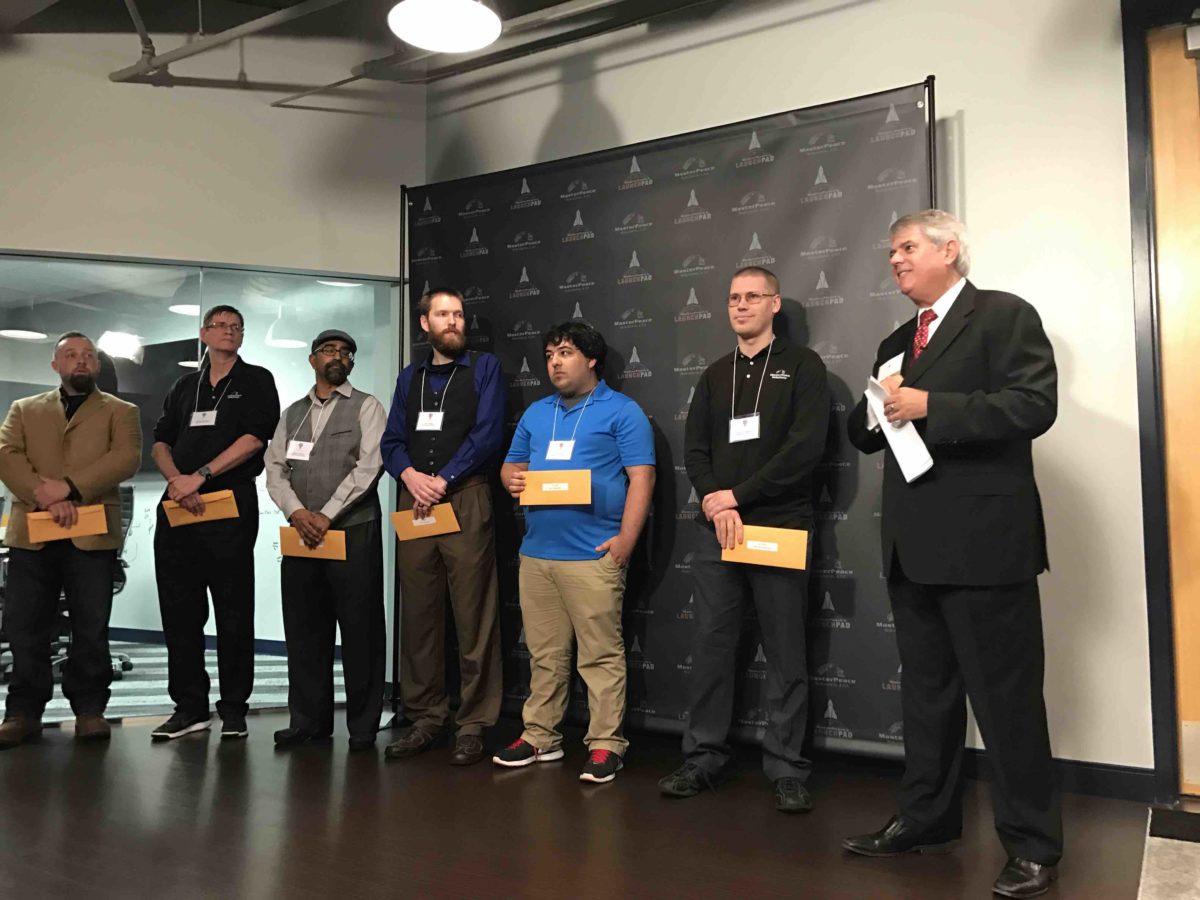For entrepreneurs, starting a company often involves quitting your day job. But MasterPeace Solutions is looking to hang on to the startups its employees create.
In addition to intelligence-focused government contract work, the Columbia-based firm is offering an accelerator to help employees get their own businesses off the ground. Called Launchpad, it seeks to provide tools and business know-how to employees who are developing new companies.
MasterPeace Solutions CEO Drew Cohen sees the creativity and tech talent within his company. At the same time, there is a desire to launch companies. Cohen believes launching more startups can bring new growth to firms that primarily do business with the government. To promote creation of a tech ecosystem in the area, he’s starting one within his own company.
“We offer this opportunity to build on top of the tech base that’s here in a systemwide and scalable way,” he said.
MasterPeace offers the financial, legal and business help to entrepreneurs that accelerators often provide to help companies get off the ground (more on who gets equity later). The accelerator also has space within MasterPeace Solutions’ offices on Columbia Gateway Drive.
So far, two companies have spun out.
- SrcLight is creating a marketplace for open-source software products, looking to create developer communities and provide support for enterprise firms that use the products. The company is made up of Drew Sollenberger, Eric Thomas, Eric Solender, Morgan Almeida, Michael Ritter and Edward Stanford.
- Zuul is an IOT platform to help bigger businesses install connected devices. The team includes Edward Stanford, Michael Patterson, Lance Ware, John Cavallo and Michael Ritter.
The companies are treated as spinouts, with MasterPeace Solutions owning 50 percent of each and the employees getting an ownership stake. The model is designed to draw ideas out, rather than having employees worried that the company will take their idea. The employees still maintain their regular jobs.
Like all accelerators, it’s up to the companies to use the resources available to fuel growth.
“It’s really structured to treat them as entrepreneurs rather than employees,” Cohen said.
Before you go...
To keep our site paywall-free, we’re launching a campaign to raise $25,000 by the end of the year. We believe information about entrepreneurs and tech should be accessible to everyone and your support helps make that happen, because journalism costs money.
Can we count on you? Your contribution to the Technical.ly Journalism Fund is tax-deductible.
Join our growing Slack community
Join 5,000 tech professionals and entrepreneurs in our community Slack today!

The person charged in the UnitedHealthcare CEO shooting had a ton of tech connections

The looming TikTok ban doesn’t strike financial fear into the hearts of creators — it’s community they’re worried about

Where are the country’s most vibrant tech and startup communities?


